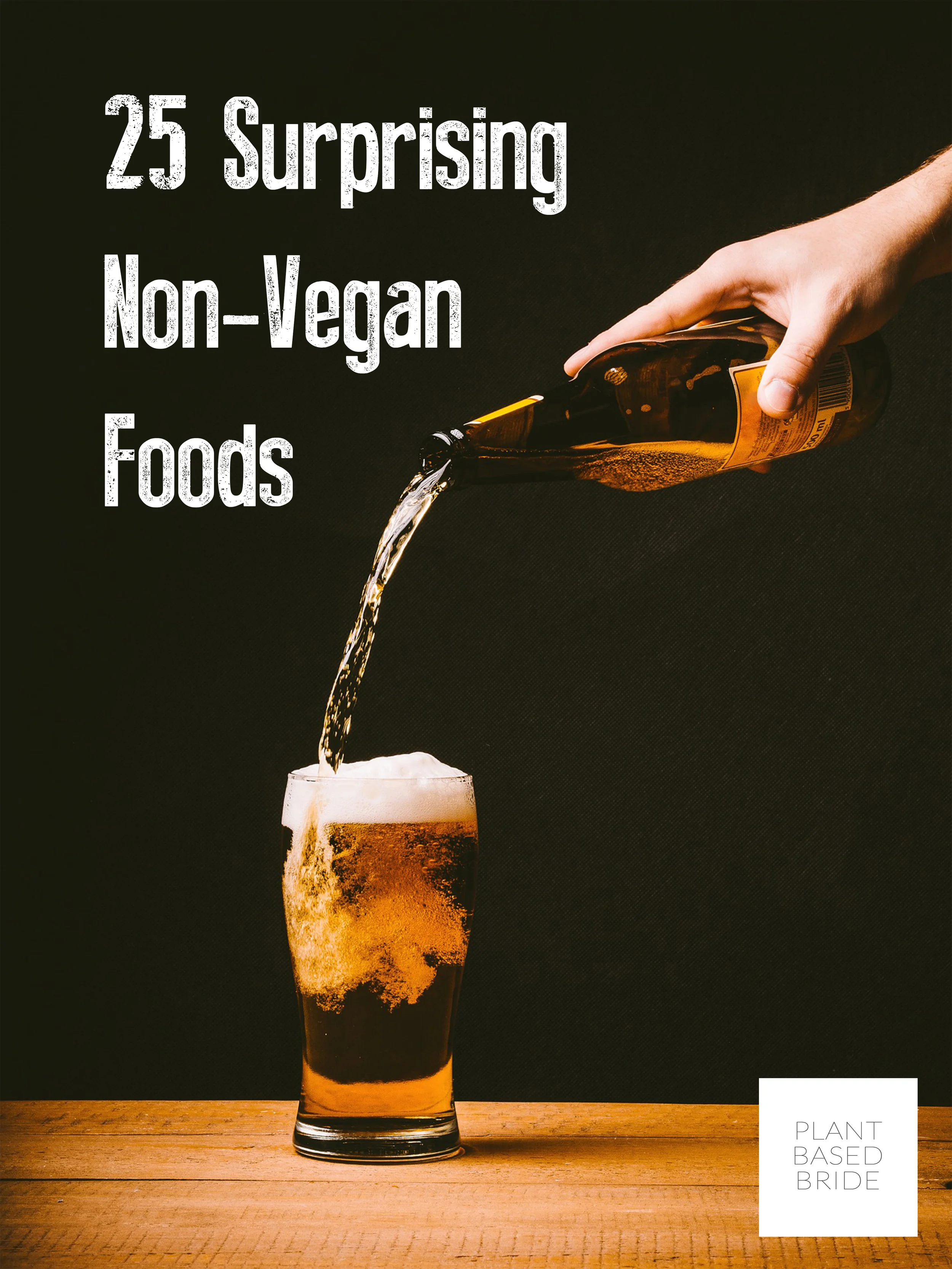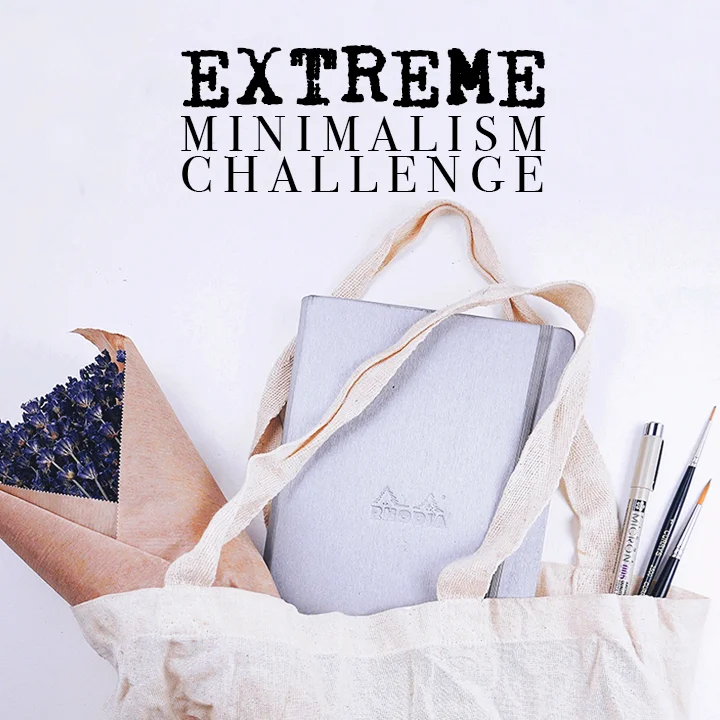
the blog.
25 Surprising Non-Vegan Foods
It can be intimidating to go vegan. Believe me, I know! After 8 months as a vegetarian and researching veganism almost daily I thought I knew without a doubt what foods were and were not vegan. Unfortunately, I was wrong. Over the past 2 and a half years eating a plant based diet I have come across many non-vegan foods that shocked me. And while I was lucky enough to discover the majority of these foods before eating them, not everyone does. Food companies love to include animal products in everything, and I mean EVERYTHING. They even sneak them into "vegan" products! Here is a list of 25 surprising non-vegan foods to avoid.
It can be intimidating to go vegan. Believe me, I know! After 8 months as a vegetarian and researching veganism almost daily I thought I knew without a doubt what foods were and were not vegan. Unfortunately, I was wrong. Over the past 2 and a half years eating a plant based diet I have come across many non-vegan foods that shocked me. And while I was lucky enough to discover the majority of these foods before eating them, not everyone does. Food companies love to include animal products in everything, and I mean EVERYTHING. They even sneak them into "vegan" products! Here is a list of 25 surprising non-vegan foods to avoid.
- Beer... many brands use a membrane derived from the bladders of fish to filter their brews. Check out Barnivore to find out if your favourite beer (or wine, or liquor) is cruelty-free!
- White Sugar... some brands process their sugar using bone char to give it its bright white colour (watch out for brown sugar too; it may be processed as white sugar and then have molasses added to make it brown). Always buy beet sugar (not refined using bone char) or organic cane sugar (bone char is not considered organic).
- Non-Dairy Creamer... can contain milk-derived ingredients such as caseinate.
- Red Dye... a popular brand of red dye called Carmine (often listed as Natural Red #4 in ingredient lists) is coloured using the scales of tiny insects.
- Jello... contains gelatin which is derived from animal bones, connective tissues, and organs.
- Vitamin D Fortified Foods... the source of vitamin D may be lanolin, derived from sheep's wool.
- Chewing Gum... often contains animal-derived glycerin.
- Cake Mix... may contain beef fat (often listed as lard in the ingredients).
- Worcestershire Sauce... traditionally contains anchovies.
- Apple Juice... may be clarified with isinglass (obtained from the dried swim bladders of fish). This one I find especially disturbing, having been a HUGE apple juice fan as a child.
- Jam... may contain gelatin.
- Tortillas... traditionally made with lard.
- Marshmallows... often contain gelatin.
- Margarine... may contain gelatin, casein (milk protein), or whey.
- Frosted Mini Wheats... contains gelatin.
- BBQ Chips... may contain traces of milk or animal fat.
- Vitamins and Supplements... often contain animal products. Read the ingredients carefully!
- Orange Juice... can be fortified with omega 3s derived from fish.
- Refried Beans... traditionally made with lard.
- Bagels... the enzyme L. Cysteine is used as a dough conditioner and is derived from poultry feathers.
- Packaged Peanuts... may contain gelatin.
- Soy Cheese... may contain casein. Just because a product's only purpose would seem to require its veganism does not mean it's animal product free! Make sure to read the ingredients carefully, even on "vegetarian" and "vegan" products.
- Altoids... contain gelatin.
- Pad Thai... often contains fish sauce. Be sure to ask!
- French Fries... may be fried in animal fat.
You Might Also Like: 10 Reasons To Go Vegan!
Lucky for us many brands provide vegan options of these foods. Make use of google and sites like Vegetarians in Paradise to investigate brands or products, and always read the ingredients!
Until next time,
Which food surprised you most? Is there a surprisingly non-vegan food I missed? Let me know in the comments below!
Also, be sure to use the sign up form at the bottom of the page to get updates from me and new blog posts right to your inbox!
Vegans vs Protein
Ah, the age-old question. The first 6 words people say after learning that I don't eat animal products; the concern used as an excuse for complete strangers to me give health and nutrition advice, sans qualifications. The only possible topic for my first Plant Based Bride blog post:
'Where do you get your protein?'
Ah, the age-old question. The first 6 words people say after learning that I don't eat animal products; the concern used as an excuse for complete strangers to me give health and nutrition advice, sans qualifications. The only possible topic for my first Plant Based Bride blog post:
'Where do you get your protein?'
Often proposed as a simple query or concern, occasionally uttered with disapproval or judgement, this question has plagued me from the day I went vegetarian, 3 years ago. And since I went vegan? Surprise, surprise: the "concern" has grown. So is there any validity to the commonly held view that those who avoid animal products will have trouble meeting their protein needs? Let's look at some numbers.
The World Health Organization published a technical report in 2002 titled Protein and Amino Acid Requirements in Human Nutrition. Disclaimer: The following is my interpretation of the information included in that report. I am not an expert in nutrition, nor am I a doctor. Please feel free to leave a comment below or email me at plantbasedbride@gmail.com if you notice a mistake of any kind, and I will look into correcting it!
They conclude that the average healthy adult of either gender requires a minimum of 0.66g of protein per day per kg of weight. For example, a 150lb (68kg) person would need 44.9g of protein per day to meet the minimum of their daily protein needs. They also recommend adding a buffer to guarantee "safe levels" of protein intake per day, which brings their daily recommendation up to 0.83g/kg. This would translate to the same 150lb (68kg) person requiring 56.4g of protein per day.
Now, all of these numbers are fine, but what does 56.4g of protein actually look like?
Well, 56.4g of protein is found in approximately...
- 1.4 cups of chickpeas (39g per cup)
- 1.4 cups of black beans (39g per cup)
- 1.6 cups of chia seeds (35.25g per cup)
- 1.8 cups of tempeh (31g per cup)
- 1.9 cups of almonds (30g per cup, whole)
- 2.3 cups of quinoa (24g per cup)
- 2.8 cups of tofu (20g per cup)
- 3.1 cups of lentils (18g per cup)
- 3.3 cups of edamame (17g per cup)
- 3.3 cups of unsweetened cocoa powder (16.9g per cup)
- 7 cups of green peas (8g per cup)
- 19.4 cups of kale (2.9g per cup, chopped)
- 21.7 cups of broccoli (2.6g per cup)
- 28.2 cups of blackberries (2g per cup)
I know what you're thinking. Who would eat 21.7 cups of broccoli in a day? Not me. Not you either, I bet. But isn't it pretty reasonable to think someone might eat a cup of quinoa (24g of protein), half a cup of chickpeas (19.5g of protein), half a cup of green peas (4g of protein), a cup of kale (2.9g of protein), and half a cup of tofu (10g of protein) in a day? I'd easily eat that for one meal. And guess how much protein you'd get from a meal like that? 60.4g. If you were an 150 pound person, you could get more than your daily requirement of protein in only one meal of your day.
But what if you're of the "more is better" protein movement? Even if you were a bodybuilder going for massive muscle gains and aiming for, let's say, 1.5g of protein per pound of bodyweight per day (which I have seen recommended on popular bodybuilding websites and is way above the recommended daily amount of protein from any scientific or medical source), you (as a hypothetically 150 pound person) would only have to eat the meal above 4 times in a day to surpass your "needs" (as you had defined them).
Now, the World Health Organization report that I've cited is only one study of daily protein requirements in humans, and there is much debate on the subject to be sure. However, it is clear with just a bit of basic math that even someone aiming for a very high intake of protein per day can achieve it very easily eating solely plant foods.
In real life conversations, the next thing brought up is the topic of "complete" proteins or combining foods for an adequate amino acid profile. But let me stop you right there! The myth of plant based protein being incomplete was debunked decades ago. Please take a look at this detailed article on the subject by Jeff Novick, MS, RD, here, if you'd like to know more.
The myth that plant foods contain no, or insufficient, or incomplete protein is utterly false. But don't take it from me. It's time to stop believing everything you're told about nutrition and do a little of your own investigating. What you find might surprise you.
So, what's my answer when someone asks me where I get my protein?
From plants. Just like you do.
Also, be sure to use the sign up form at the bottom of the page to get updates from me and new blog posts right to your inbox!


































